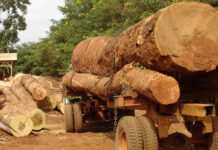- “The truth is that most people think they will get COVID-19 when they visit the hospitals”, said Alfred Nii Adotey, Opinion Leader, and a Community Health Volunteer in Chorkor in Accra.
COVID-19 has disrupted all aspects of life including the delivery of routine health services. In Ghana, statistics from the Ghana Health Service (GHS) show that COVID-19 has indeed resulted in about 11 percent decline in outpatient department (OPD) attendance for essential health services and a similar decline is also being recorded in admissions, and immunization coverages. Routine health services for non-communicable diseases (NCDs), childhood illnesses and other conditions also saw a decline during the same period.
As part of efforts to address the current health care delivery gaps and build resilience of community health systems, the United Nations Development Programme (UNDP) in partnership with the Ghana Health Service and with funding from the Government of Japan, is currently implementing a project.
The project aims at strengthening community health systems to support the continuity of essential services for the vulnerable during and post COVID-19.
Under the project, community health workers at Community-based Health Planning and Services (CHPS) compounds, community health management committee members and volunteers from Accra Metropolitan and Ga Central assemblies have been trained to support the uptake of essential health services for the vulnerable in Ghana.
“Community-based health care is critical to enhancing access to primary healthcare services. We are happy to work and support this initiative with all the stakeholders and communities to build back better healthcare services and enhance capacities for future health crises’’, Mr. Oyama Hiromoto, Deputy Chief of Mission at the Embassy of Japan noted.
For Grace Boakye, a registered midwife at the Tabora Health Centre in Accra, the training is very timely because health workers are at the forefront of emergency health care services.
“This training has taught me how to classify emergency cases, especially, during this pandemic. I can now work more effectively with the community volunteers to bring healthcare delivery to community members. Thank you, UNDP, Ghana Health Service, and Japan, for prioritizing community health workers”, she stated.
The training is particularly significant as it provides a pathway for community health volunteers and community health workers to work together effectively in ensuring good health for all.
“The role of community health officers has never been more important than at this time. Your home visits and support for health services brings health care to the doorsteps of the most vulnerable and deprived communities and households, Angela Lusigi, Resident Representative at UNDP commended health workers.
With few years left for the achievement of the Sustainable Development Goals (SDGs), we all have a role to play in achieving universal ‘health for all.’ This will mean ensuring that communities and individuals have access to the information and services needed to improve their health outcomes.










